January 21, 2017
A historic day of protest
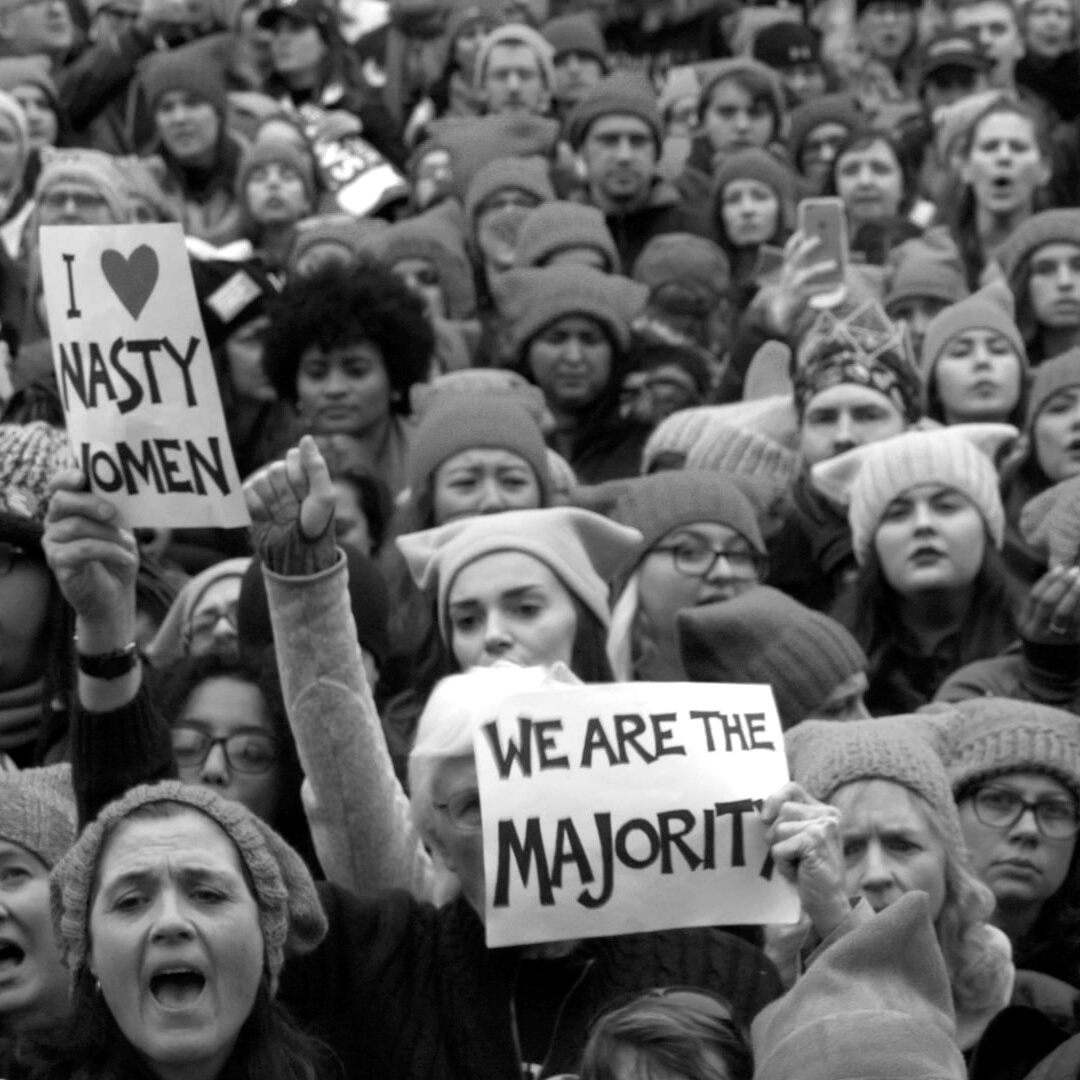
The Women's March on Washington and hundreds of sister marches across the country and around the globe brought millions to the streets the day after US President Donald Trump’s inauguration for what has been heralded as the largest single-day protest in American history.
“In this moment, what I see as being something that is extremely powerful is opportunity, but it is only opportunity. Because until January 22nd comes and we see people continue to do the work, it means nothing.” — Tamika Mallory, co-president, Women’s March
January 28, 2017
Protesters flood US airports
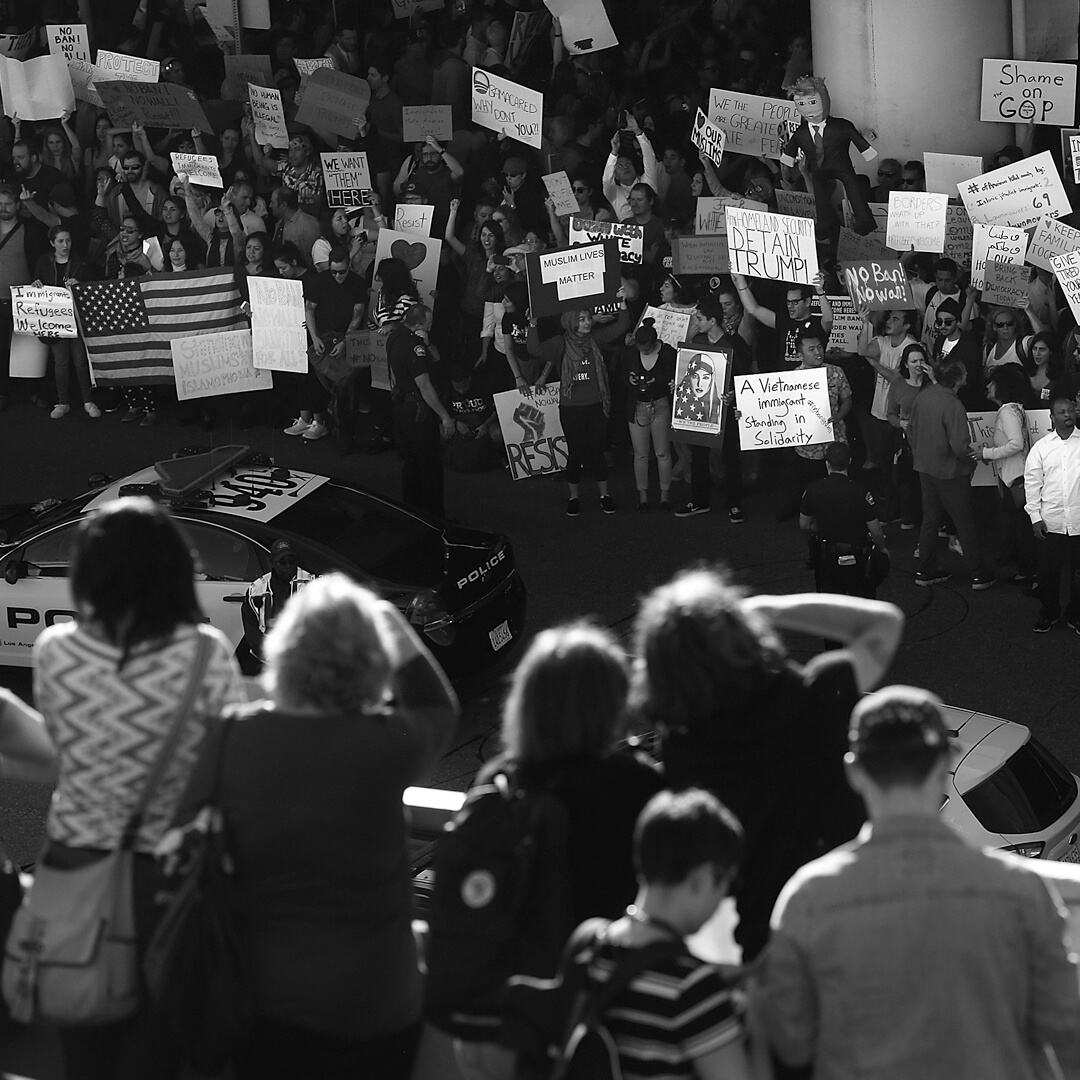
Protesters and legal professionals flood US airports by the thousands in the chaos that followed President Trump’s first executive order, which banned citizens from seven majority Muslim countries from entering the US, as well as indefinitely halting the entry of Syrian refugees. On February 9, a federal appeals court ruled 3 to 0 against the travel ban, the first of three such travel bans signed by executive order during President Trump’s first year.
“People were organizing everywhere and it was the most remarkable thing, because it proved to me at that moment that the Women's March had the momentum to build a resistance in this country … it was one of the first moments in 16 years living in a post 9/11 America that has continuously targeted our community with all types of policies and wars, that our people were like, ‘Wait a minute, maybe our fellow Americans are down. Maybe they do understand that we're in this together. Maybe this resistance really does want to center us and care about us.’ For me it was really moving.” — Linda Sarsour, assistant treasurer, Women’s March
January 31, 2017
10 days after the historic day of protest in the nation's capital
The Women’s March organizers head back to Washington, D.C. just 10 days after the historic day of protest in the nation’s capital. They are joined by fellow organizers, activists and elected officials outside of the Senate Judiciary Committee’s session to approve the nomination of then-Alabama Sen. Jeff Sessions as the US attorney general. The full Senate confirmed Sessions’ nomination on February 8.
“We must say to our senators that if you vote ‘yes’ for him, we will vote ‘no’ for you … Where we have to be headed, ladies and gentleman, brothers and sisters, is towards the 2018 elections, to say to folks that in these midterms, we will not forget you. That if you do not follow the will of the people, we will ensure that you do not have a job come midterms in this country.” — Tamika Mallory, co-president, Women’s March
February 16, 2017
The "Day Without Immigrants" nationwide strike
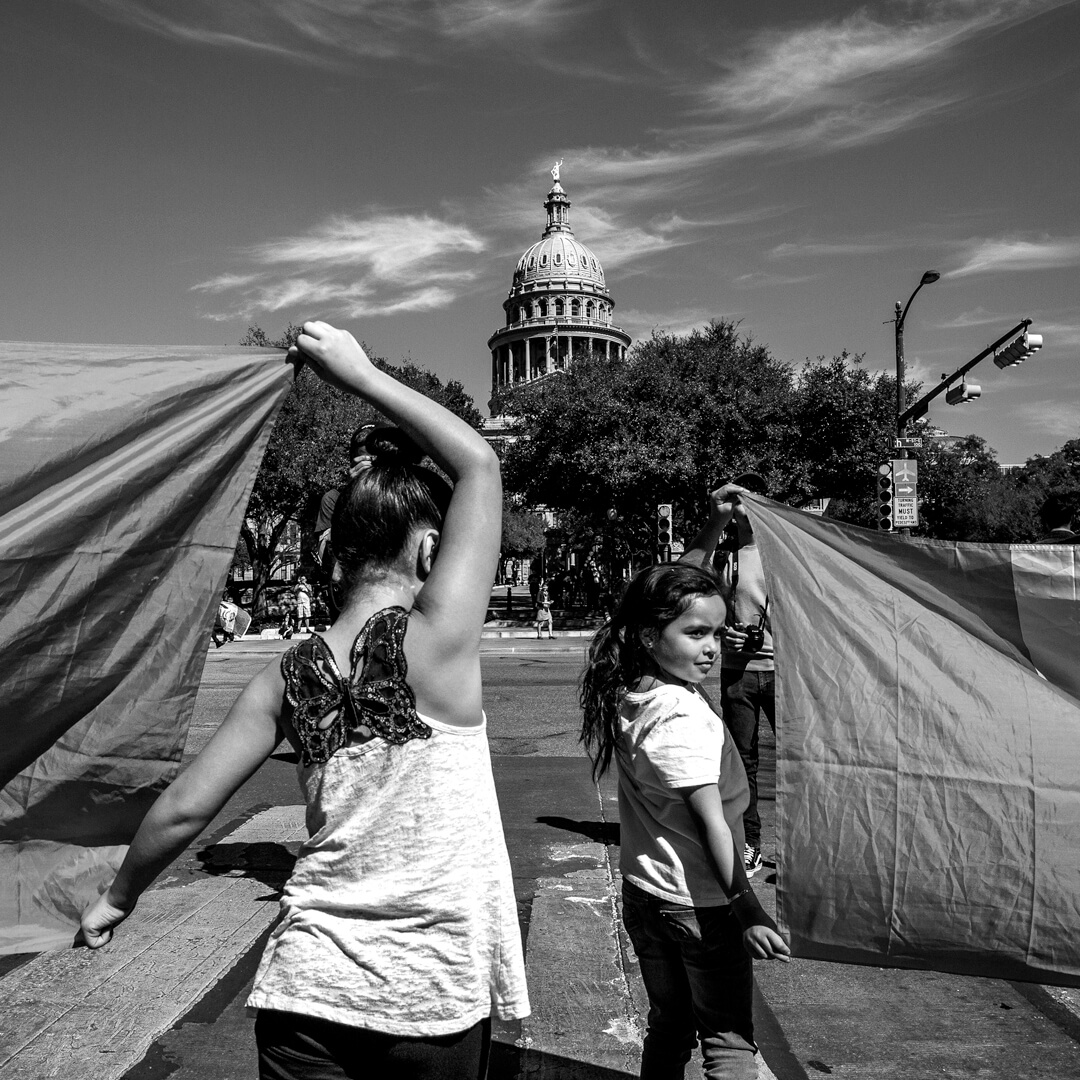
The “Day Without Immigrants” nationwide strike and boycott saw businesses shut down amid a political climate that protesters perceived as increasingly hostile to immigrants. The mass protest would serve as the inspiration for “A Day Without A Woman” the following month.
February 17, 2017
The Women’s March launches an environmental justice campaign
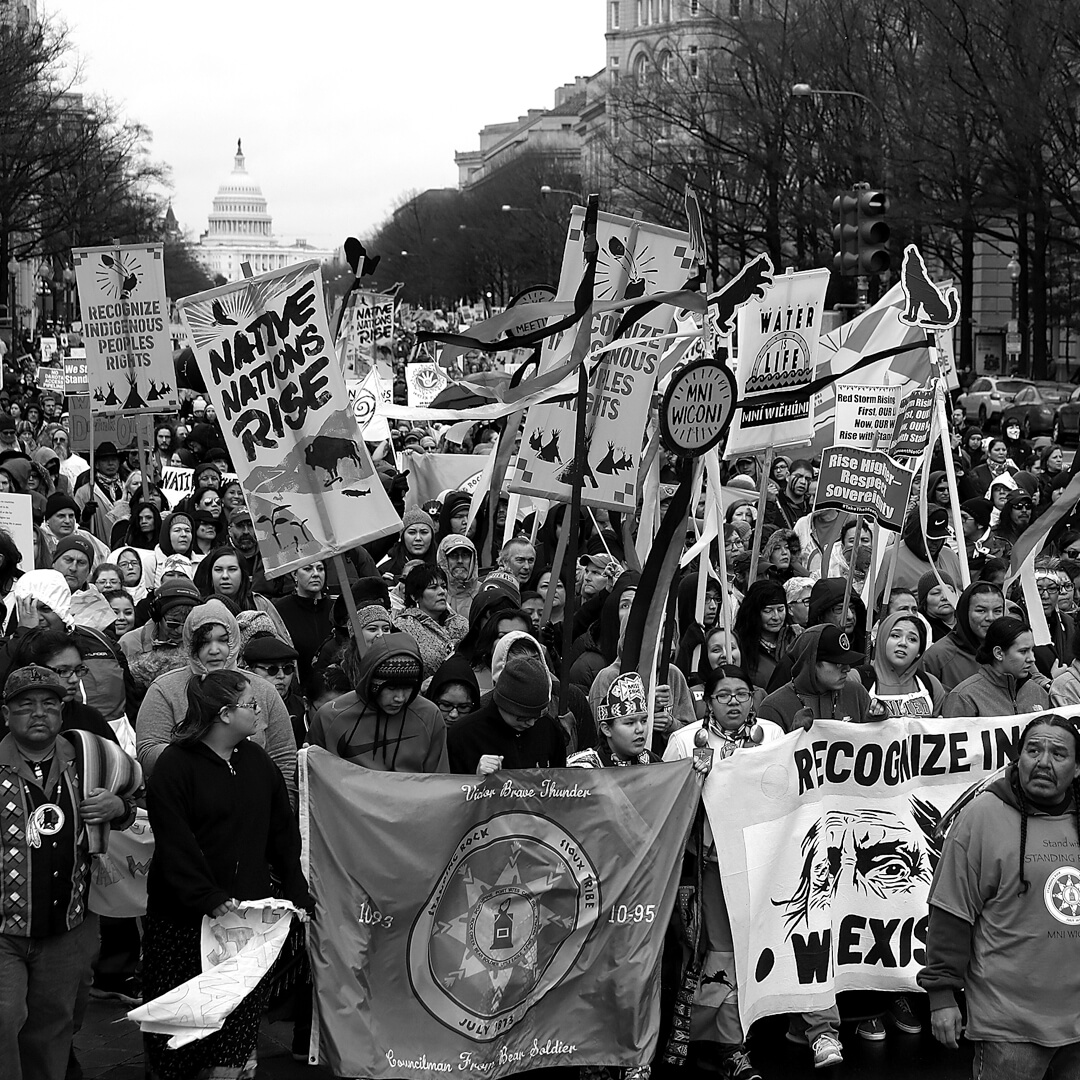
The Women’s March launches an environmental justice campaign focused on defunding the Dakota Access Pipeline by encouraging people to withdraw their money from the major banks financing the controversial and heavily protested project.
February 19, 2017
The "I Am a Muslim Too" rally in New York City
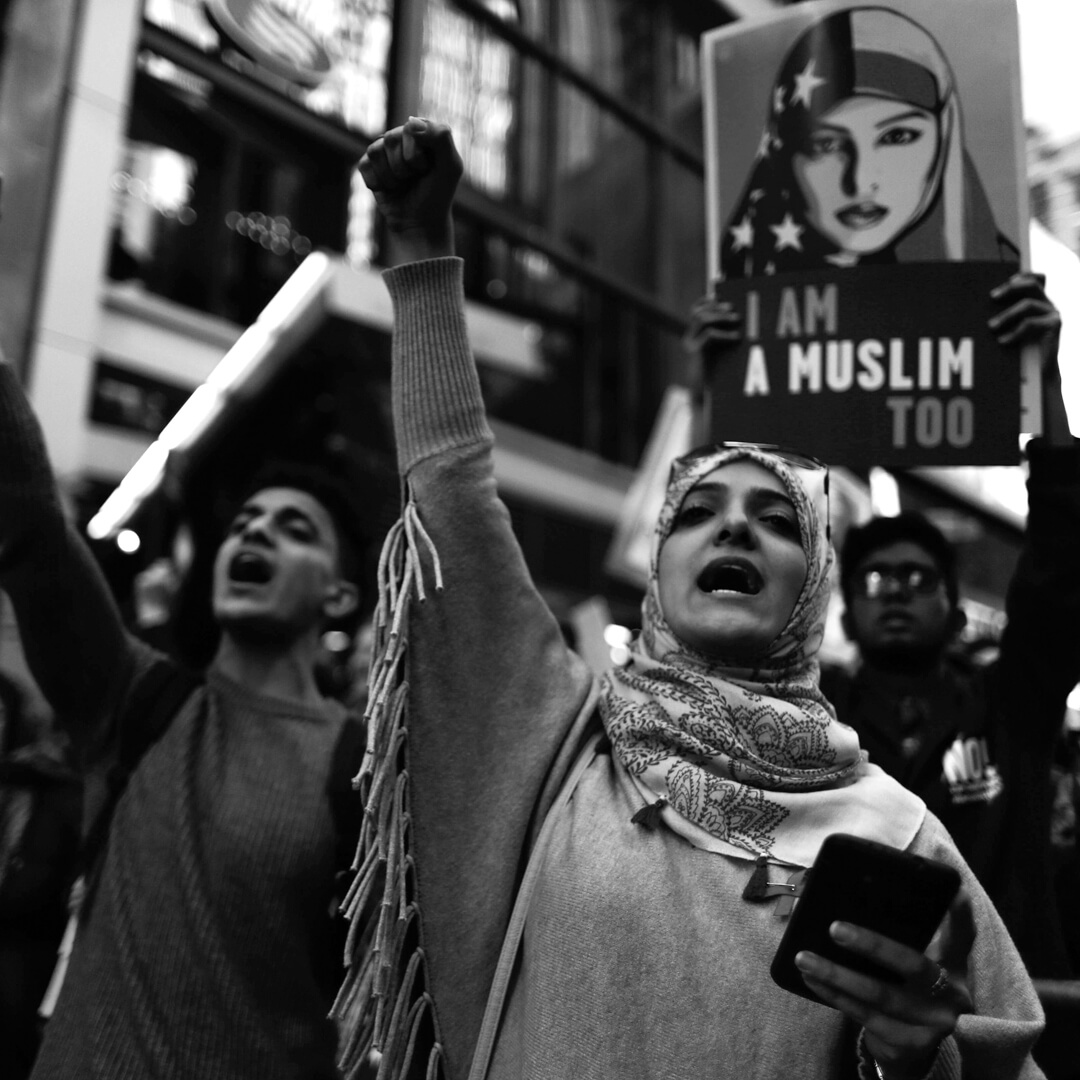
The “I Am a Muslim Too” rally in New York City’s Times Square is a public declaration of solidarity with Muslims amid what is perceived to be increasingly discriminatory rhetoric and policy from the Trump administration against Muslim Americans and immigrants, including legally contested bans aiming to bar travel into the US by citizens of several majority Muslim countries.
February 18-25, 2017
Town hall events flooded with vocal constituents
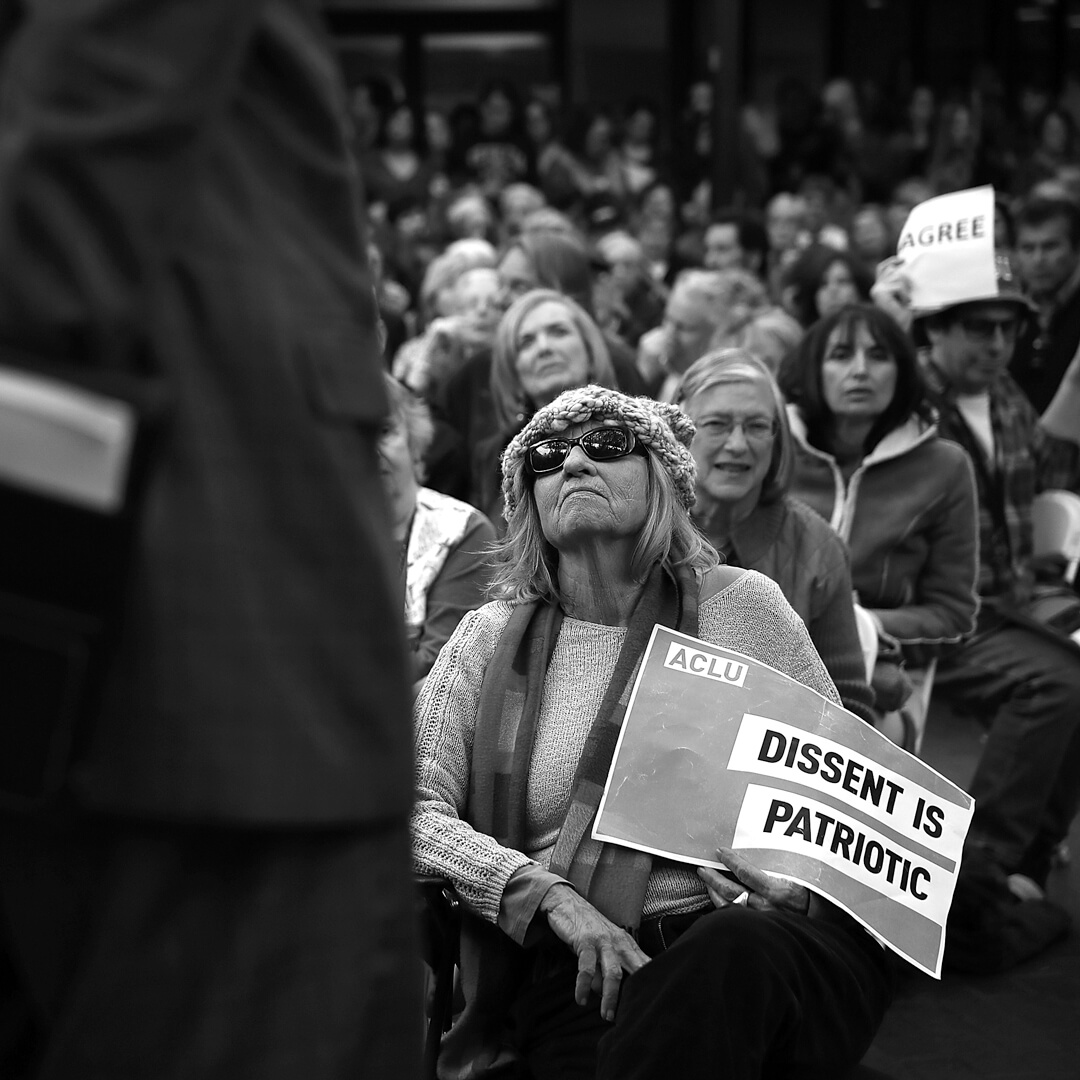
During President’s Day week, members of Congress held town hall events in their home districts that were flooded with vocal constituents, mobilized into civic engagement.
March 8, 2017
Women across the country and around the world went on strike
Women across the country and around the world went on strike on International Women’s Day, encouraged to demonstrate their collective economic power by skipping work and refusing to spend money at businesses not owned by women or minorities.. In the US, several school districts closed for the day and Democratic members of the US House of Representatives staged a walkout and rally on Capitol Hill. In solidarity with the International Women’s Strike organizers, Women’s March organizers led “A Day Without a Woman” rally and march in New York City that culminated in an act of civil disobedience. Thirteen people, including all four national co-chairs of the Women’s March, were arrested while blocking traffic in front of the Trump International Hotel and Tower.
“Recently, I had a neighbor ask me ... ‘Why would you ever get arrested? That's crazy.’ So going through the history of nonviolent direct action and civil disobedience as a tactic of social justice, and historically how that was part of the Civil Rights Movement and things like that, a year ago, I couldn't have spoken to any of that. I was just learning it.” — Bob Bland, co-president, Women’s March
March 24, 2017
A "Kill the Bill" rally brought protesters to the US Capitol building
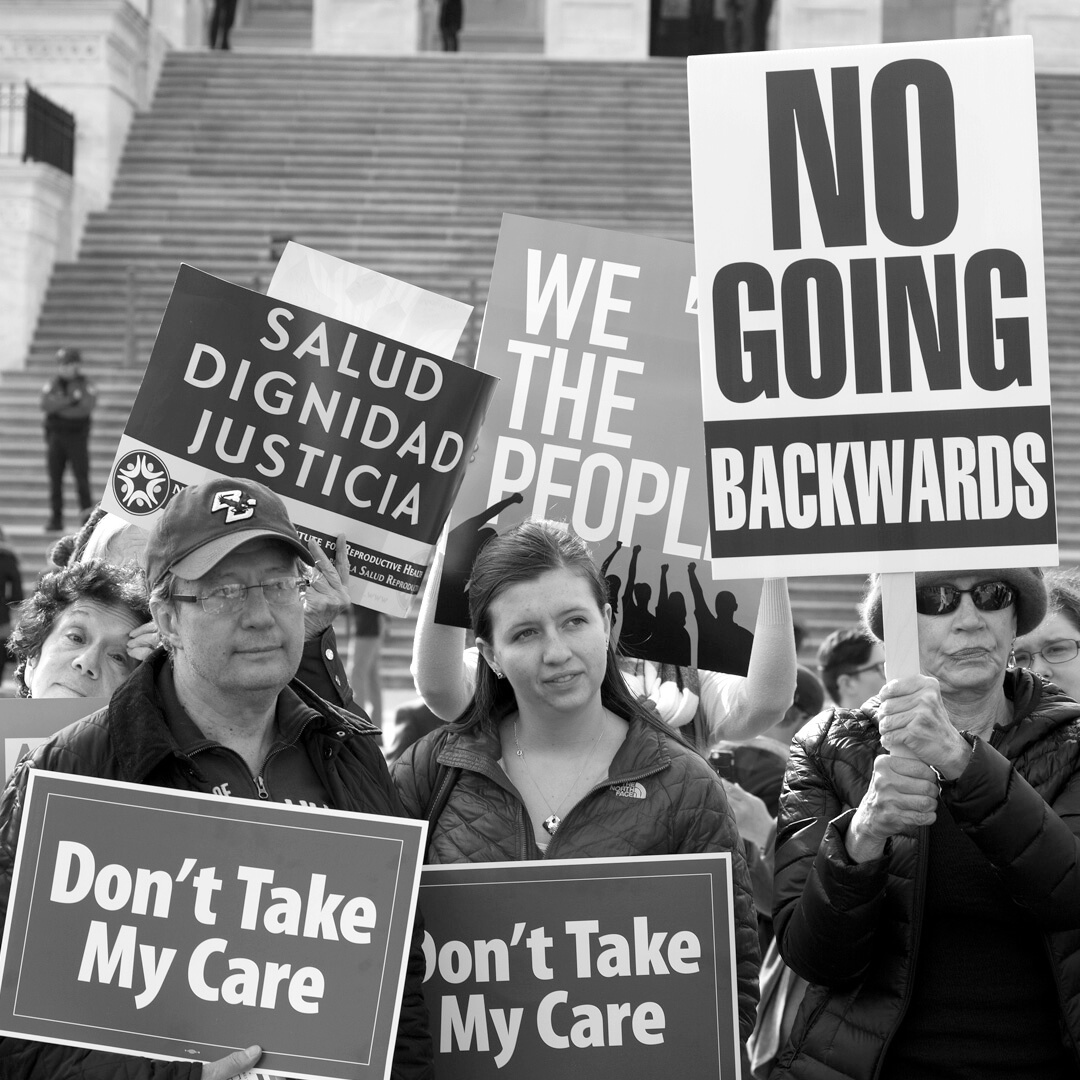
A “Kill the Bill” rally brought protesters to the US Capitol building, demanding that members of Congress vote “no” on the latest iteration of the GOP healthcare bill. House Speaker Paul Ryan pulled the bill and postponed the vote after determining there was not enough support to pass it.
April 13, 2017
"Women for Syria" rallies and vigils in cities across the country
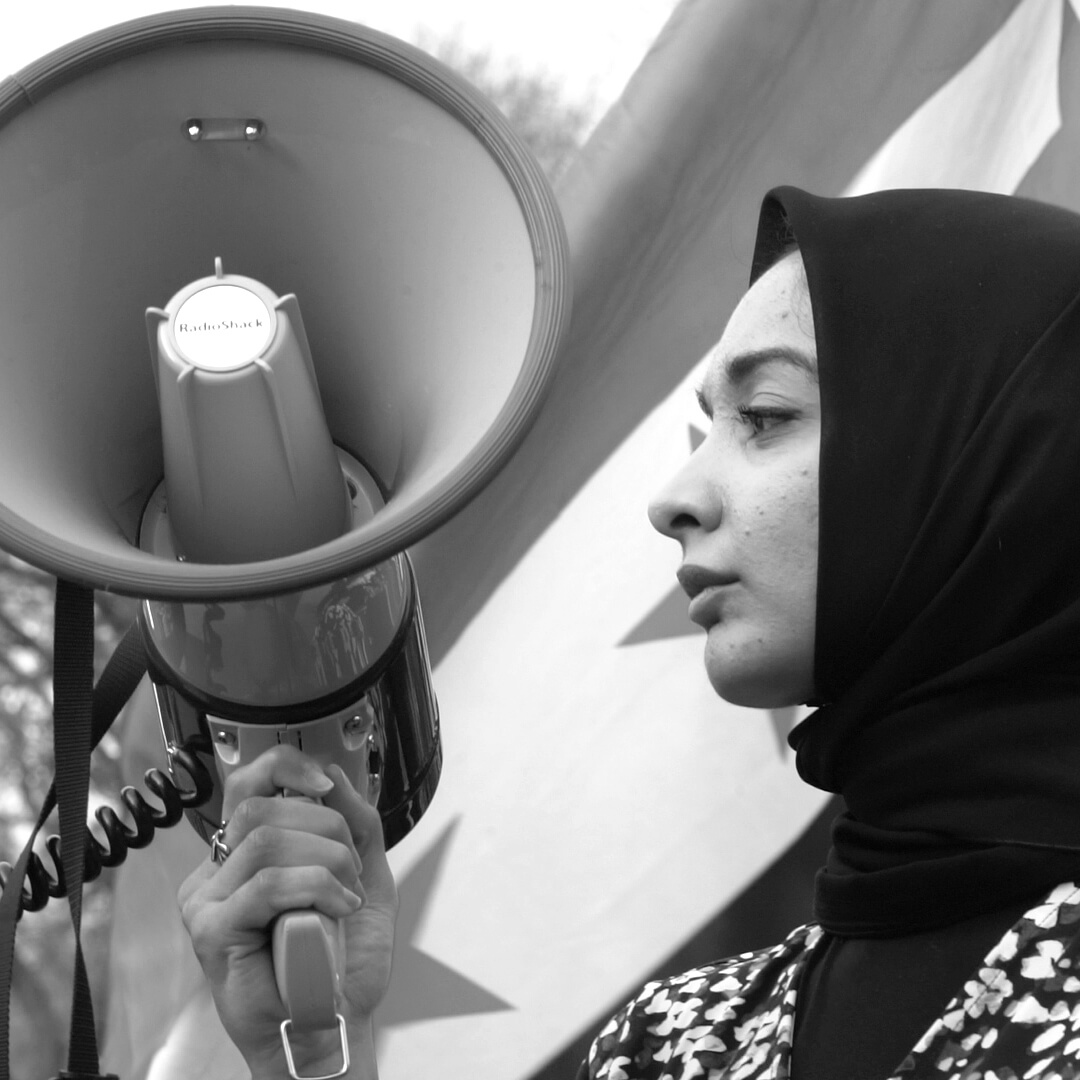
Urging people to educate themselves about the ongoing conflict and humanitarian crisis in Syria following a chemical weapons attack in the country days earlier, Women’s March organizers held “Women for Syria” rallies and vigils in cities across the country. Activists in New York condemned President Trump’s executive order to indefinitely suspend the admission of Syrian refugees into the US.
April 22, 2017
March for Science brought scientists and advocates to the streets
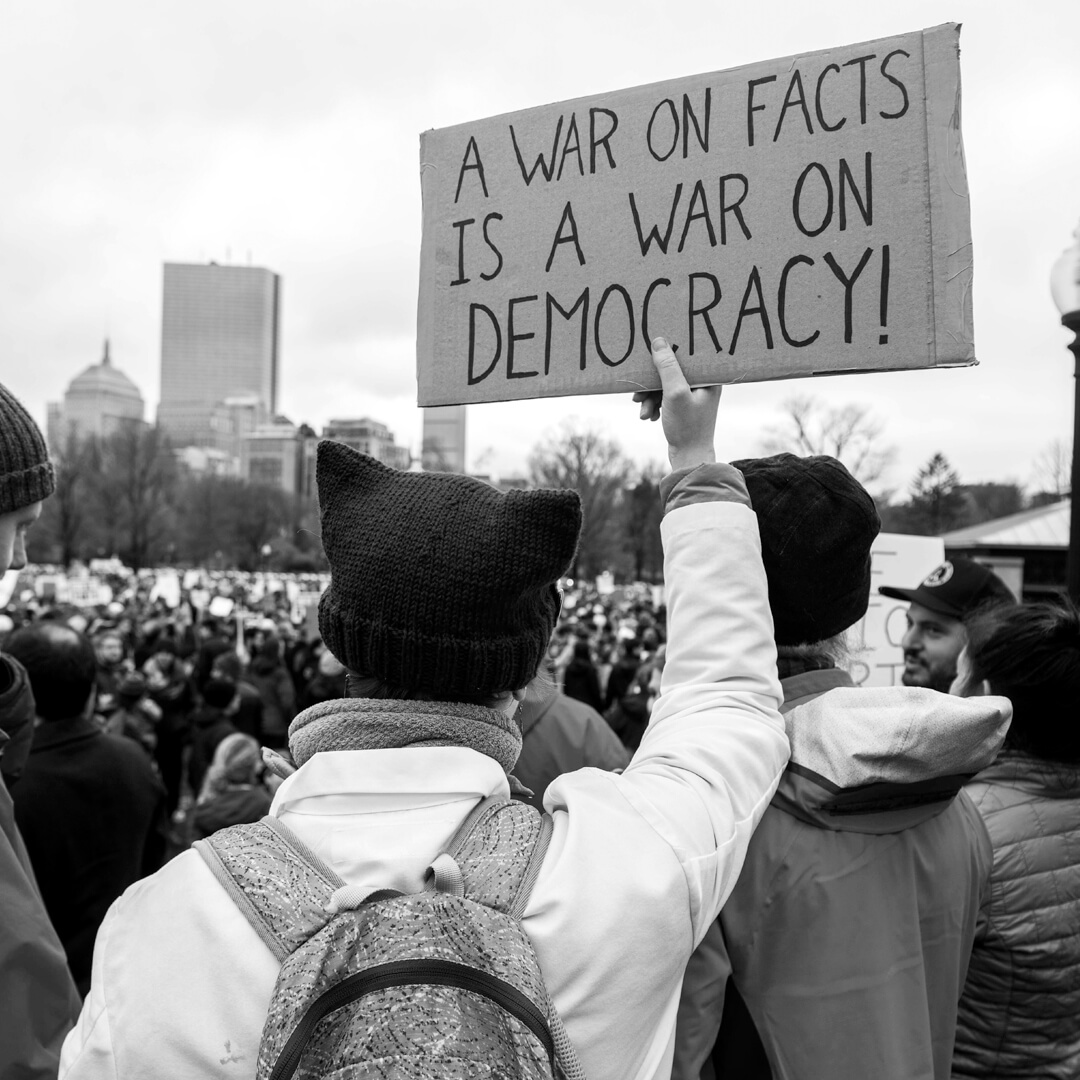
Inspired by the Women’s March on Washington, the March for Science brought scientists and advocates who believe in “science, not silence” to the streets of the nation’s capital and hundreds of cities across the globe. The Earth Day demonstrations called for evidence-based policymaking and adequate funding for the sciences.
May 1, 2017
May Day protests and strikes around the country
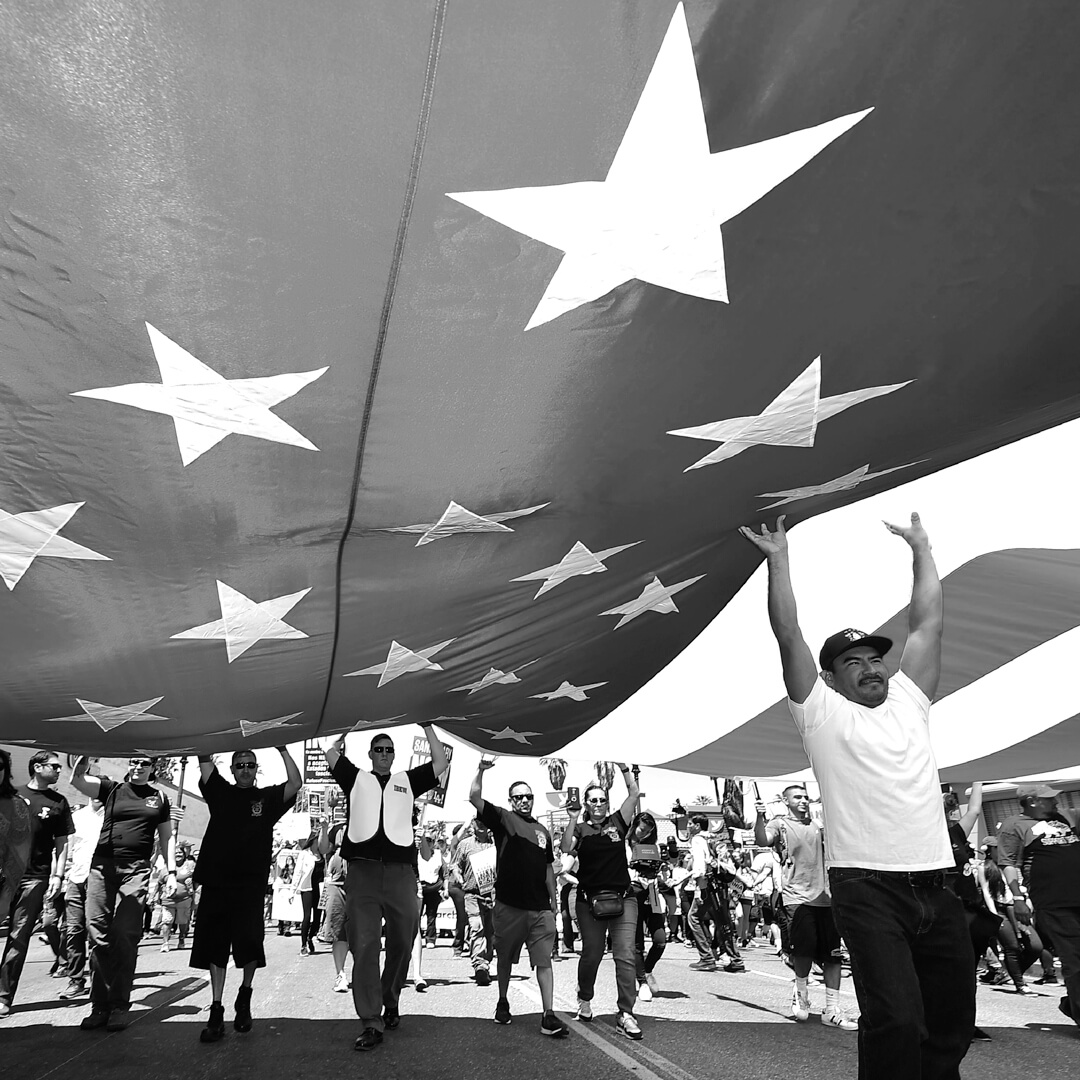
Organized labor, immigrant rights groups and others marched in large-scale May Day protests and strikes around the country. Pockets of demonstrators in a few cities engaged in property destruction and clashed with counter-protesters in what police classified as riots.
June 27-28, 2017
"The People's Filibuster to Stop Trumpcare" brought protesters to Capitol Hill
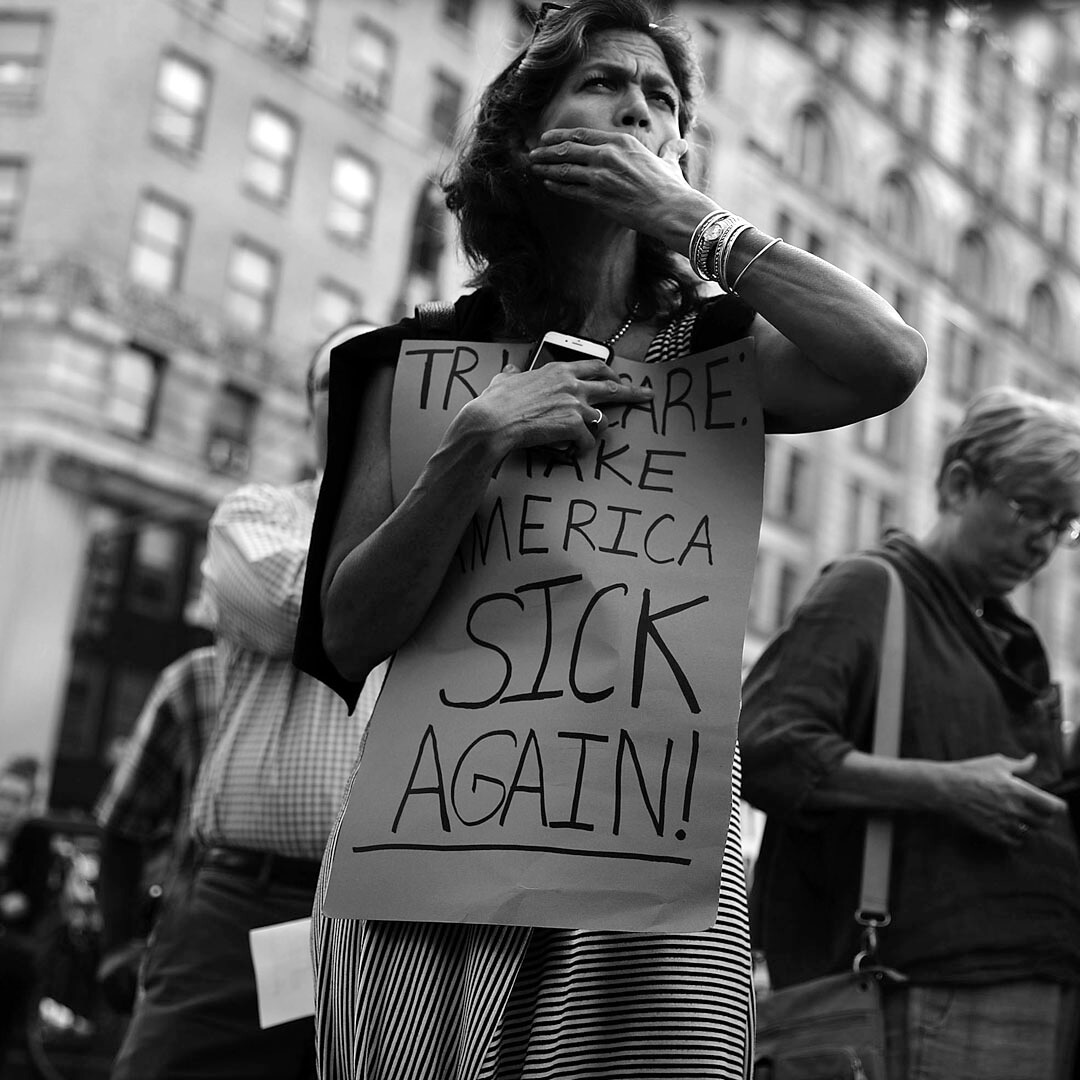
"The People’s Filibuster to Stop Trumpcare" brought protesters to Capitol Hill against Republican efforts to repeal and replace the Affordable Care Act. Protests, sit-ins and die-in demonstrations were staged across the country during the month of June against the GOP’s attempt to repeal the Affordable Care Act. Dozens of disability rights activists and advocates were arrested, after being forcibly removed from Senate Majority Leader Mitch McConnell's office. Without enough votes to pass, the planned Senate vote was postponed and by the end of September, another Republican healthcare bill dies without the votes to pass.
July 14, 2017
The Women's March organized an 18-mile march from NRA headquarters
Following the publication of a National Rifle Association ad, which critics say encouraged violence against progressive movements and peaceful protesters, the Women’s March organized an 18-mile march from the NRA headquarters in Fairfax, Virginia, to the US Department of Justice in Washington. Women’s March leadership also called out what it said was the inadequate response by the NRA to the acquittal of the Minnesota police officer in the killing of Philando Castile, a black man and licensed gun owner who was fatally shot during a traffic stop. Activists marched in 90-degree heat and through a downpour against gun violence and in favor of tighter gun control legislation.
“My son’s father, 16 years ago, was shot and killed and left in a ditch for two weeks before his body was discovered. I often think about the fact that an illegal gun was used to kill him. And I wonder, if we had sensible gun laws and background checks that may have stopped the person who trafficked that gun into the hands of the person who shot him, would he be here to help me raise my 18-year-old son right now?” — Tamika Mallory, co-president, Women’s March
August 28, 2017
Activists embarked on a 10-day march against white supremacy
Participants in the “Unite the Right” rally, including members of the KKK, neo-Nazis, and white nationalists, clashed with counter-protesters in Charlottesville, Virginia, on August 11 and 12. Counter-protester Heather Heyer was killed and more than a dozen people were injured in the violence. On August 28, a coalition of activists, organizers and protesters embarked on a more than 100-mile, 10-day march against white supremacy from Charlottesville to Washington.
“For a lot of white women who were not woke, who were not really a part of these movement spaces or these conversations, when we woke up last year on November 8, 2016, we were not aware of the way that going through the world … without acknowledgment of our whiteness, we didn't realize the way that that was creating violence in the world and in communities of color. We didn't realize how we were upholding the system of white supremacy and other systems of oppression through our lack of acknowledgement of our privilege.” — Bob Bland, co-president, Women’s March
September 5, 2017
Attorney General Jeff Sessions announces DACA will be rescinded
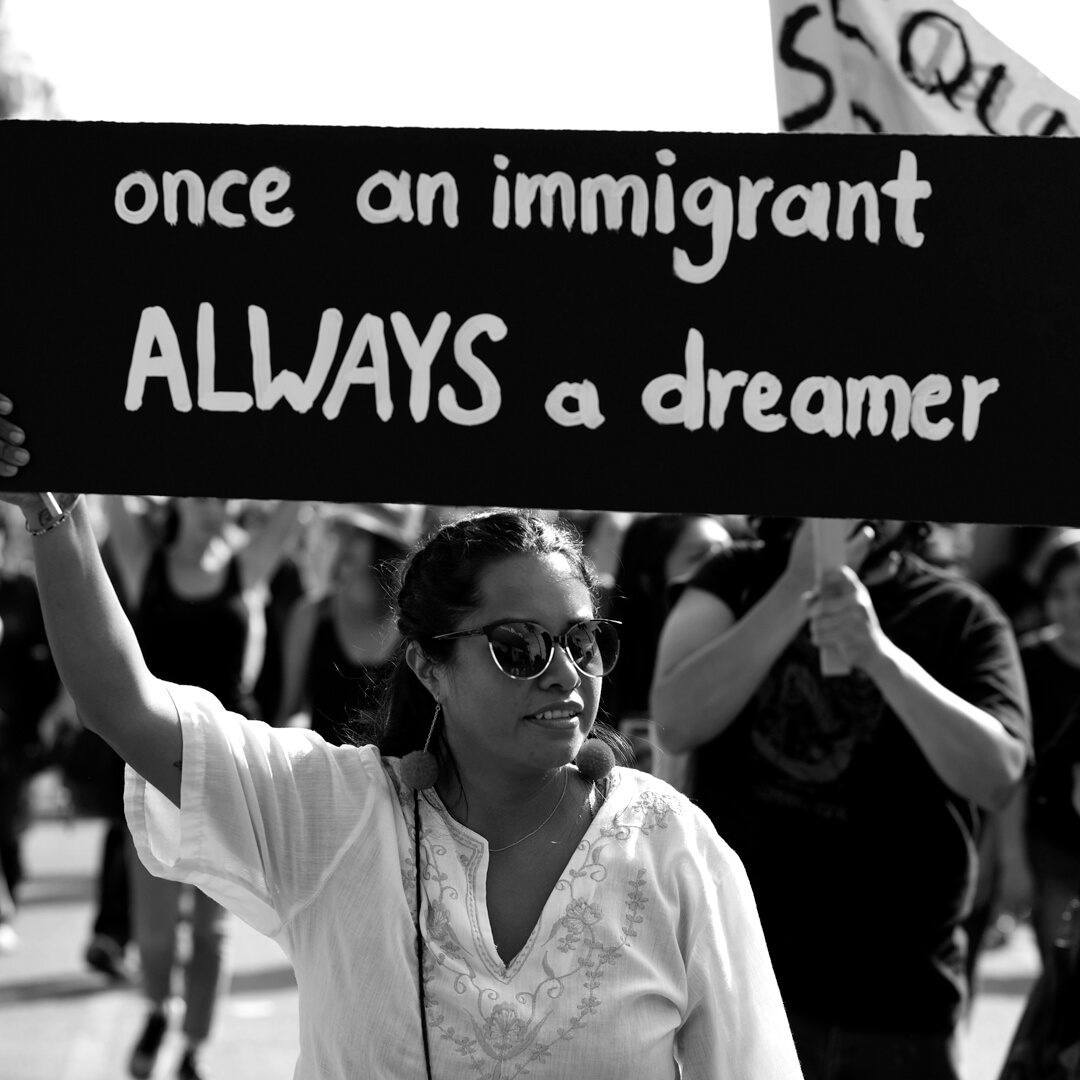
Attorney General Jeff Sessions announces that the Obama-era program, Deferred Action for Childhood Arrivals (DACA), will be rescinded, leaving in limbo the fate of approximately 800,000 young people who arrived in the US illegally as children. The decision sparked protests and rallies across the country in the first weeks of September. On January 9, 2018, a federal judge temporarily blocked the Trump administration’s decision to end the DACA program.
October 15, 2017
The two-word hashtag "MeToo" went viral on Twitter
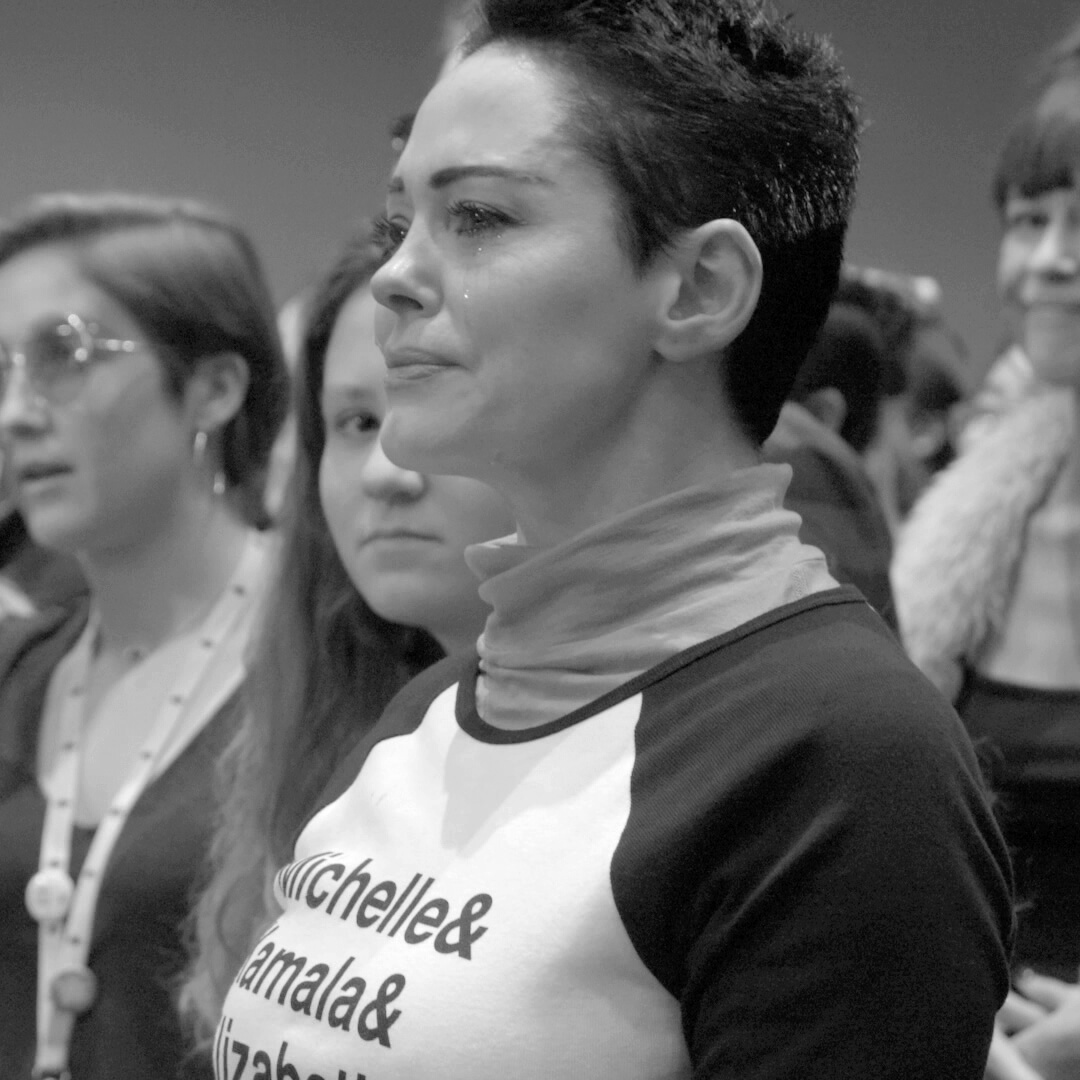
As numerous women in Hollywood spoke up to accuse movie executive Harvey Weinstein of serial sexual harassment, the two-word hashtag “MeToo” went viral on Twitter, with women from all walks of life sharing their personal experiences of sexual harassment, assault and abuse. The “Me Too” campaign, founded by activist Tarana Burke 10 years earlier, took off and has continued to build momentum across industries into 2018’s “Time’s Up” campaign.
“One thing that's personal to me is bringing awareness to domestic violence. And particularly with the Me Too campaign that has been revamped … I certainly want to figure out how I could share my story as somebody who has experienced domestic violence herself … having our voice and using it is probably the most critical.” — Carmen Perez, treasurer, Women’s March
October 27, 2017
The Women's March organization convened a three-day convention
The Women’s March organization convened a three-day convention including speakers, panels and crowd-sourced workshops, from “Fundraising for a Revolution” to “Confronting White Womanhood” -- the latter of which was held twice due to popular demand. The Women’s Convention in Detroit also included trainings on how to run for elected office and hosted a diverse cross-section of partnerships and representation, from immigrant rights groups, to disability rights activists, to the reproductive justice and anti-violence against women movements.
“I believe the convention solidified an approach to organizing. When you go back to your communities … look around the table. Who's not there? The Women's March taught you who needed to be at your table. The Women's March taught you about daring discussions.” — Linda Sarsour, assistant treasurer, Women’s March
November 7, 2017
Historic Democratic wins
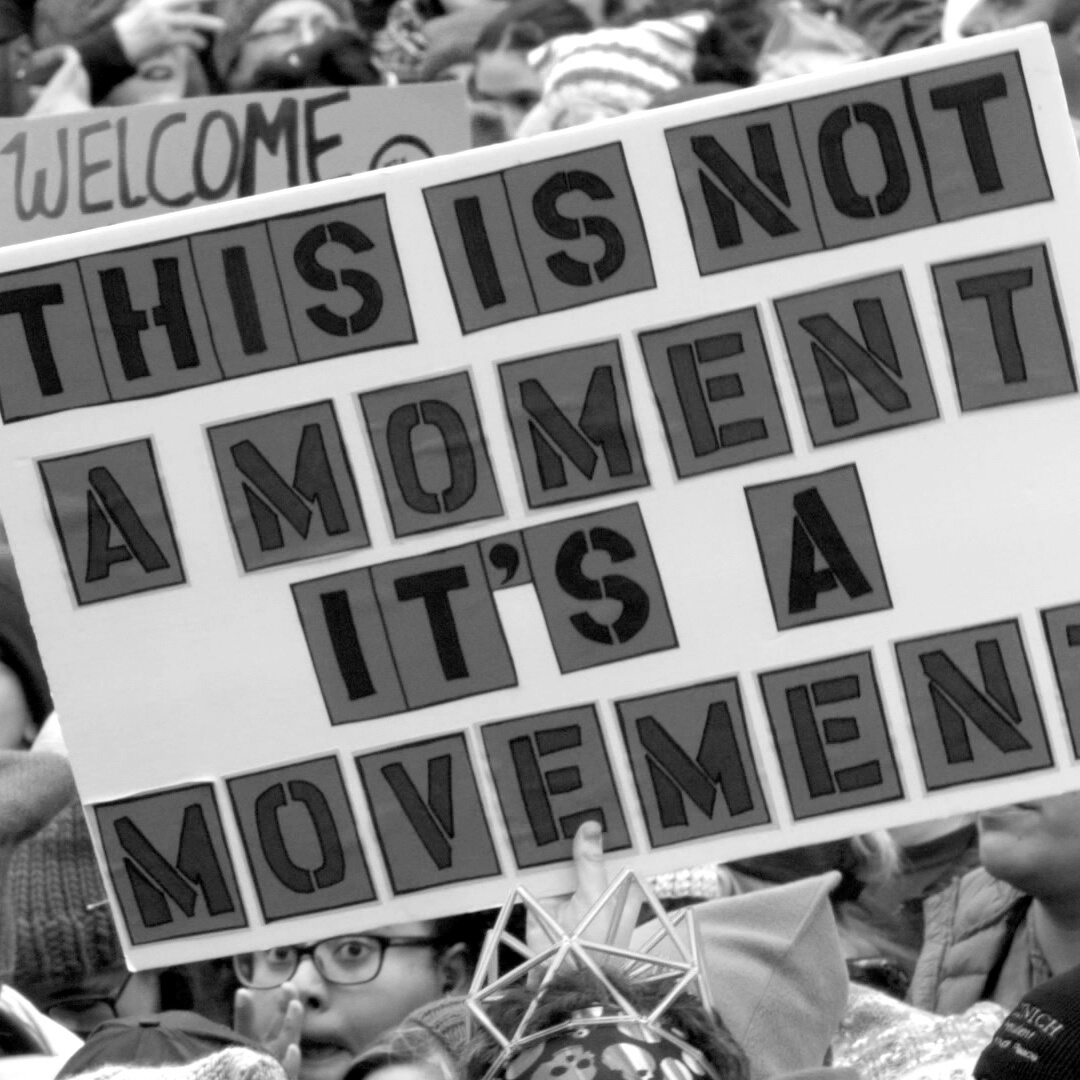
Local elections across the country saw surprising and historic Democratic wins, including that of openly trans candidate Danica Roem. She unseated Virginia House Delegate Bob Marshall, the author of the state’s bill to restrict access to bathrooms by trans people. Kathy Tran, a refugee from Vietnam, became the first Asian-American woman elected to the Virginia House of Delegates, and several women who were inspired to run by the Women’s March won seats as well. Hala Ayala, who decided to run after organizing a bus trip to the Women’s March on Washington, will become one of the first Latinas in the Virginia General Assembly.
“This work of registering and empowering and educating voters, I think this is where we'll be able to impact all the issues we care about … My grandmother used to say, ‘God could take a crooked stick and hit a straight lick.’ And when I think about that, to me, it signifies the idea that I can take my vote and knock all the pins down.” — Tamika Mallory, co-president, Women’s March
December 13, 2017
Hundreds protest the Republican tax overhaul bill
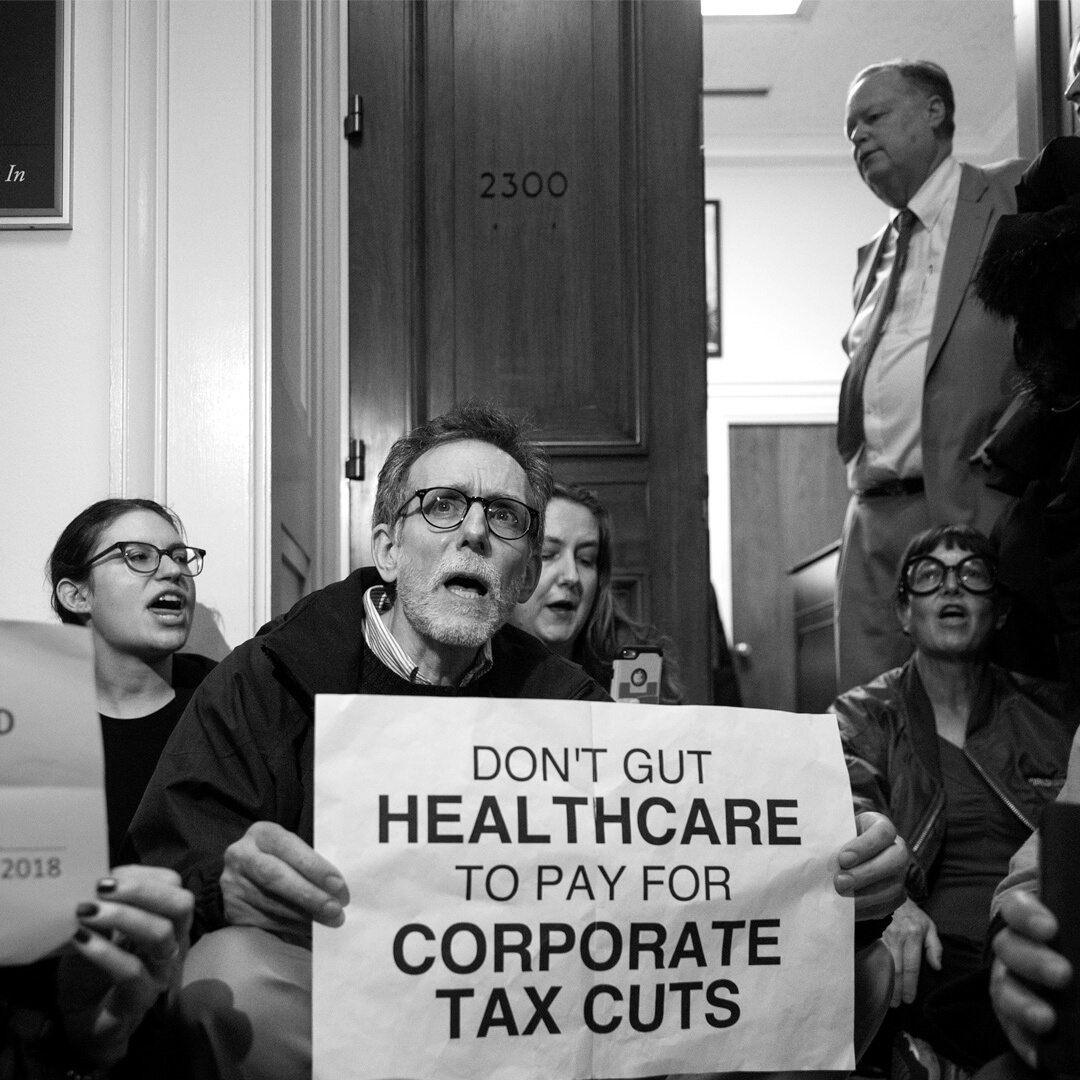
Hundreds converged on Capitol Hill to protest the Republican tax overhaul bill, which included a repeal of the Affordable Care Act mandate. According to a CNN poll, when the measure eventually passed on December 20, only 33% of Americans supported it.
“I think this resistance is starting to teach people how important it is for me as someone who -- thank God, is not terminally ill and I have been blessed with good health -- that doesn't mean I don't go show up for people who would die if we repeal healthcare or if we pass a tax bill that could detrimentally impact their life ... That is an important, very basic concept of humanity: that we cannot live in a society where people around us suffer.” — Linda Sarsour, assistant treasurer, Women’s March


